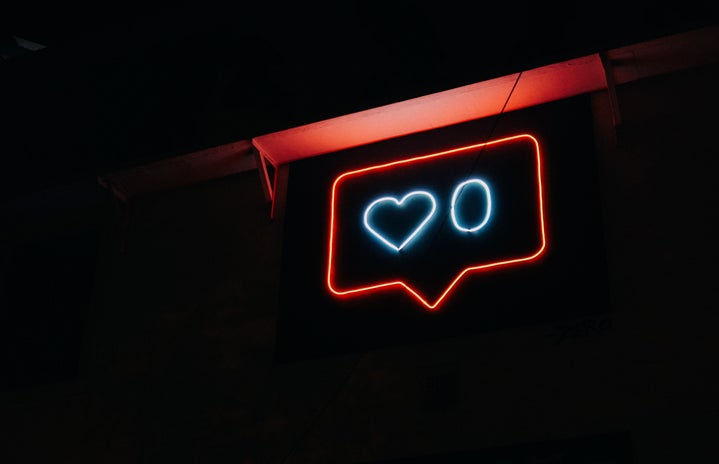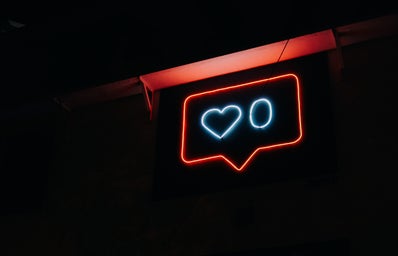I have been seen!
And no, not in a deer in headlights manner, but in a shared resonance of feeling recognized by a community.
I was at my university bar on a Thursday night, dancing, chatting with my friends, until someone approached me and asked if I was also a type 1 diabetic. Also type 1 diabetic? I was shocked, I gazed in confusion as to how they would know such a thing, and when they pointed to my arm, to the exact spot of my CGM, I couldn’t believe that someone had actually known what it was – that in all my years I wasn’t being asked what it was because they has already known. They had recognized one of their own.
I always feel shame for not talking about my type 1 diabetes more, especially because of how much it affects me, and how much pain and hope it has given me. It’s an invisible nuisance that I’ve grown up with my entire life, so why don’t I talk about it the way I talk about music? Shouldn’t I be a “leading” example for my community?
It is because I, admittedly, am a rather bad diabetic.
Half the time my sugars are out of range, I’m constantly struggling with the body dysmorphia and the depression that having diabetes gives me, and therefore this lack of control makes me feel unworthy of representing a community that is so strong. Because am I really strong if I can’t control my blood sugars? Am I really strong if I’m not taking all the precautions I should to avoid problems?
Yes, I am. The only reason I think I’m not is because, like every person in this world, a small part of me desires to be perfect; to be a “good” representation and influence. So, because it’s Diabetes Awareness Month, I’m going to be completely candid about my experience and about the fact that I am far from being a perfect diabetic, and own it like it was my first name.
You see, I had always grown up very comfortable talking about my condition. This isn’t to be confused with feeling confident in it, but I never felt afraid to explain it to other people. It was a part of me, and people are obviously going to ask me about it, so why would I hide it? What I didn’t realize was that this wasn’t a reality for everyone. Don’t get me wrong, I feel plenty of shame and embarrassment, but the actual concealing of diabetes was something I didn’t come to know and understand until I met a fellow diabetic in freshman year of high school. She used to discreetly check her blood sugar behind her locker door, and one day, when I had realized that she was holding a finger pricker and a glucose monitoring machine, I jumped in excitement and asked her: “You’re diabetic too?!”. Instead of the happiness and pride I felt when someone from our beautiful warrior community asked me, she looked completely embarrassed and upset that I had asked her in front of all the girls in our common room.
I didn’t understand why she was so upset, but as we got to know each other, she explained to me that she hid her condition because of the bullying that she had endured for it in her last school. And she’s not wrong, I’ve had my fair amount of feeling weird, being taunted and compared to a robot in my life, asked if it was the reason I was so big, if the cause was due to my weight and eating too much cake when I was little. It stung and I will never forget those moments of ridicule and mockery, so I understood her, and while I did not feel the same way about expressing my condition, she is completely valid in how she wanted to express herself as a diabetic, and there is absolutely no shame in that.
But it made me wonder – how does a type 1 diabetic express themselves? Is it even a thing- diabetic expression?
Whether it was or not – ‘Dia-spression’ – I like it and I’m going to own it. I’m not going to hide my arms hoping no one sees it – let them see me wear my sensor with pride.
If you have ever read campaigns for type 1 diabetes from places like JDRF, Beyond Type One or Diabetes UK (amongst others) you’ll often see hashtags like #Type1Strong, hear the words warrior used for diabetics, as well as for their caretakers and guardians who look after them. Which in all sense of the word is extremely true.
Every year for Diabetes Awareness Month you’ll see a theme for the year and people wearing blue to express their pride in being diabetic, or in supporting their loved ones. There are also numerous virtual and in-person talks throughout the year with panels of researchers and type 1 diabetics advocating for awareness and I love this. I love hearing their stories of how diabetes found them, how they’ve dealt with it, and how in all of it, they’ve never allowed it to stop them from succeeding in life. I love Diabetes Awareness Month and I love seeing better representation for us – you have no idea the pride and happy tears I had when I watched the film, Turning Red, and saw an animated character wearing a diabetes management system- Look! There we are! In a Pixar movie.
There’s even an increase in diabetic influencers on TikTok and Instagram, people who are openly speaking about their experiences and showing the world their diabetic meds with pride. So why shouldn’t I join this movement? Visibility and awareness doesn’t mean perfection and idealism.
I’m not saying I’m an influencer. Far from it.
However, what I am, is someone who refuses to sit in a shame box and punish myself for not being the ideal diabetic. Someone who is inspired by people’s stories and who loves telling them, and if that inspires you – amazing, if it doesn’t – I don’t mind. This is my experience and my space to express myself as I please. So I wrote this article so that myself, and the whole world who may read this, can know that I am a proud type 1 diabetic.
I cannot change the fact that I am diabetic. I can’t magically grow a functioning pancreas, nor pretend it doesn’t exist (and trust me, I have). So, if I’m stuck with this thing, I should show it the same love I show myself.
So with that I leave you with this:
Ask me questions – I’ll happily answer them. Don’t poke me though or ask to touch it – no need for that.
Look at me, at my CGM, at my insulin pump. I definitely seem like I’ve come out of a sci-fi film, but isn’t sci-fi also the future?
I’m unique (and this is not to say that no one else is, everyone is in their own way) but I’m owning it, and it’s a constant battle everyday to remind myself that when I wear a tank top or short sleeve top that puts my CGM on full display, that I am waving a flag to other diabetics that we are here, that are so many of us, and that there is no shame in this condition.
Let’s pull out our insulin pumps, CGM’s, glucose monitoring kits, glucose tablets, and injections. Let’s give them names and a story. Let’s share experiences, doubts, and fears – or not at all- whatever we feel comfortable with. Let’s smile in solidarity for each other when we recognize one another, and let’s revel in the fact that we’ve been through so much and that we’re still here, that we are type 1 diabetics, absolute kickass warriors.
Happy Diabetes Awareness Month to all my fellow diabetics!
I don’t love my diabetes but I’m learning to love the person I’ve become because of it, and so should you.


